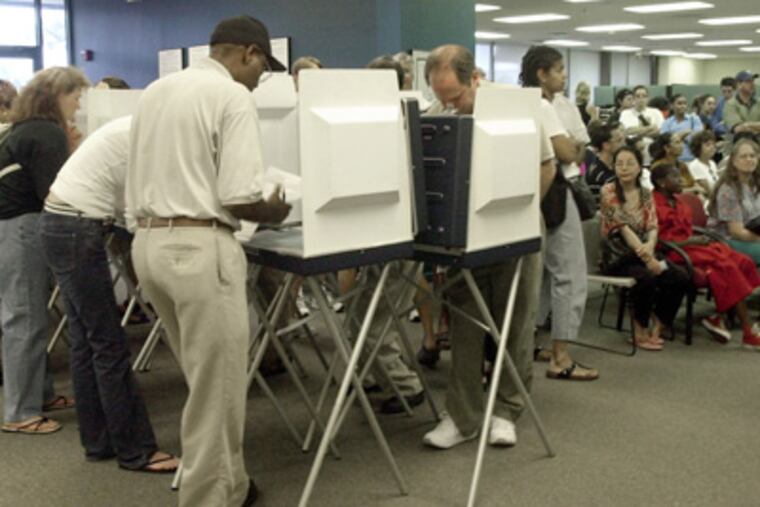
Back in 1776, Pennsylvania took the pioneering step of dropping the requirement that a voter must own land. In the 19th century, the state claimed one of the earliest known absentee-voting laws. In more modern times, however, the state has fallen behind some of the trends toward expanding voter access.
Perhaps the most important such effort is toward discarding the idea of a single Election Day. In many states, elections take place across weeks and months. That's happening in two ways: by allowing voters to cast absentee ballots at will, and opening the polls for voting before Election Day.
With both approaches growing in popularity, preliminary estimates suggest that a quarter of Americans voted for president before Election Day this fall. Thirty-four states now allow some form of excuse-free absentee or early voting - leaving Pennsylvania in a dwindling minority.
Early voting has often been greeted like a rock band with an unexpectedly large and fervent following, surprising officials. Droves of voters have turned out to take advantage of it. Florida's governor extended early-voting hours from eight to 12 hours a day in an effort to accommodate the crowds.
The most obvious benefit of early voting is convenience, and democratic participation should be as convenient as practically possible. But its appeal seems to go beyond that. Some voters have noted that it allowed them, at least for personal purposes, to put an end to a long campaign season.
At the same time, early voting reduces the chances that voters will overwhelm a state's election machinery, leading to interminable lines and delayed results.
Convenience voting has been embraced most in the West and South. Oregon elections proceed entirely by mail, and several other states are doing the majority of their voting outside the confines of Election Day.
The Northeast, characteristically, has clung more tightly to historic habits. New Jersey, however, recently joined the trend by instituting excuse-free absentee voting. But Pennsylvania and Delaware remain among the holdouts.
While Gov. Rendell and some lawmakers have expressed support for convenience-voting measures, there has been no progress toward enacting them.
There have been other proposals for moving away from the traditional Tuesday voting, which raises barriers by scheduling the election on a single workday. The trouble is that a weekend Election Day is bound to land on someone's sabbath. And although an Election Day holiday would solve part of the problem, it would not guarantee a day off for everyone.
Early voting neatly solves these dilemmas. It can spread the election across a weekend, a week or more, maximizing convenience for the entire electorate. And it does so while maintaining the relative security and reliability of a one-day election.
Excuse-free absentee voting, meanwhile, boosts convenience further, though arguably with some risks to ballot secrecy and security.
Certainly there's no reason for Harrisburg to continue ignoring both options. Given the overwhelming popularity of convenience voting, along with the absence of demonstrated drawbacks, Pennsylvania should bring its democratic process into the current century.